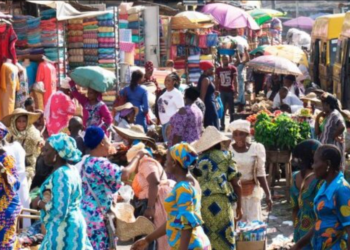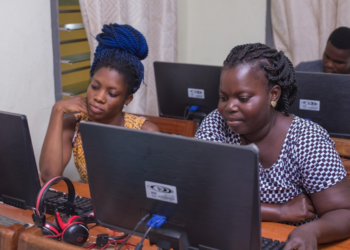Nigeria witnessed a slowdown in new business formation in 2024 as fewer entrepreneurs ventured into starting fresh enterprises.
Business birth rate dropped to 24% in 2024, down from 30% in 2023 and 32% in 2022.
This was revealed in the 2024 State of Entrepreneurship (SoE) Report published by Fate Foundation, a non-profit private-sector-led organisation.
“In 2024, the business birth rate in Nigeria fell to 24%, from 30% in 2023 and 32% in 2022,” the report stated
The report noted that entrepreneurship in Nigeria is driven by economic necessity, with the main motivation being the need for additional income.
State rankings
According to the report, Anambra and Ebonyi emerged as the best-performing states in 2024 with an entrepreneurship index score of 0.77, significantly higher than the national average of 0.46.
“In 2024, Anambra and Ebonyi states led the rankings with a score of 0.77. This is significantly above the average index of 0.46,” the report stated
Both states excelled in business birth rates, the share of registered businesses, and support for youth and female-led businesses that grew and secured financing.
Kogi, Kwara, and Oyo followed in third, fourth, and fifth place. Among the top five states from 2023, Kano, Kogi, Kaduna, Borno, and Bayelsa — only Kogi retained its spot in 2024.
At the lower end, Niger, Cross River, and Zamfara recorded the weakest scores.
The report noted that overall, relative to last year, 20 states recorded a decline, while 15 states improved their rankings. Two states – Plateau and Zamfara – maintained the same spots in 2024.
Rising in female entrepreneurs
Despite the slowdown, female participation in entrepreneurship rose. The report showed that 47% of new businesses in 2024 were established by women, up from 42% in 2023. Bauchi, Niger, and Abia recorded the highest rate of new female-owned businesses.
- The share of female-led enterprises has been rising steadily over the last three years, from 43% in 2021 to 48% in 2024.
However, female entrepreneurs remain more vulnerable to economic shocks.
“In 2024, 63% of female-led businesses reported growth, a decrease from 74% in 2023 and slightly lower than the 64.3% for male-led businesses,” the report stated.
States such as Anambra, Ebonyi, and Ogun recorded the highest growth rates for female-led enterprises, supported by access to new markets, rising demand, and technology adoption. Yet, access to finance stood out as the most critical challenge for women in business.
Major business hurdles
The report highlighted limited access to finance, poor electricity supply, insecurity, foreign exchange difficulties, and weak infrastructure as the five biggest obstacles for entrepreneurs in 2024.
“In 2024, the top five most problematic factors for entrepreneurs included limited access to finance, poor power supply, insecurity, foreign exchange difficulties, and infrastructure challenges.
Factors such as insecurity, foreign exchange issues, and infrastructure challenges emerged among the top five in 2024, reflecting problems of exchange rate depreciation and insecurity, which dominated headlines during the year,” they stated.
Even with these constraints, most Nigerian entrepreneurs remain hopeful. The report revealed that 87% of entrepreneurs said they are optimistic or very optimistic about business opportunities in the next year (2023: 86%).
However, expansion plans have slowed. Only 68% of entrepreneurs indicated plans to grow their businesses in 2024, compared to 78% in 2023.
Recommendations
The report urged the Nigerian government to ensure macroeconomic stability by implementing business-friendly policies to attract long-term foreign direct investment.
- Enhance non-oil exports to boost foreign exchange inflows and address volatility in the exchange rate and inflation.
- Establish incubator programmes for youth and female-led businesses to leverage technology and access affordable finance.
- Recapitalise development finance institutions to expand coverage of affordable finance for entrepreneurs.
- Make business registration more accessible to informal entrepreneurs to encourage formalisation.
- Create public-private dialogue platforms to facilitate peer learning on state performance and foster inclusive policy-making.

























